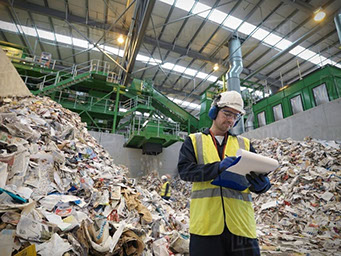Finding reliable cardboard recycling near me has become increasingly important as we strive to make environmentally conscious decisions in our daily lives. Whether you’re dealing with moving boxes, packaging materials, or regular household cardboard waste, knowing where and how to recycle properly can significantly impact our environment and community.
Understanding Local Cardboard Recycling Options
The journey to effective cardboard recycling begins with understanding the available options in your local area. Many communities offer various solutions for cardboard disposal and recycling, each with its own benefits and requirements.
Municipal Recycling Programs
Most cities and towns operate dedicated recycling programs that include cardboard collection services. These programs typically run on a scheduled basis, making it convenient for residents to dispose of their cardboard waste properly. The process usually involves breaking down boxes, removing non-recyclable materials, and placing them in designated bins.
Traditional curbside pickup remains the most accessible option for many households. However, some municipalities have implemented more sophisticated systems, including automated collection and sorting facilities that can handle various types of cardboard materials more efficiently.
Modern recycling programs often use technology to optimize collection routes and track participation rates, helping communities achieve their sustainability goals while providing better service to residents.
Drop-off Centers and Recycling Facilities
Local recycling centers serve as essential hubs for cardboard recycling, especially for those who generate large volumes of waste or live in areas without curbside pickup services. These facilities often operate extended hours and accept a wider variety of cardboard materials than municipal programs.
Professional recycling centers employ trained staff who can properly sort and process different types of cardboard, ensuring maximum recycling efficiency. Many facilities also offer educational resources and guidance on proper recycling practices.
The advantage of using dedicated recycling centers lies in their specialized equipment and expertise, which allows for better sorting and processing of materials, ultimately leading to higher quality recycled products.
Commercial Recycling Services
Businesses and organizations often require specialized cardboard recycling solutions due to their higher volume of waste. Commercial recycling services provide tailored programs that can include regular pickup schedules, dedicated containers, and detailed reporting on recycling metrics.
These services often offer additional benefits such as waste audits, sustainability consulting, and compliance assistance with local regulations. The commercial sector plays a crucial role in advancing recycling technology and practices, often pioneering new methods that eventually benefit residential recycling programs.
Maximizing the Value of Cardboard Recycling
Beyond simply finding a recycling location, understanding how to prepare and handle cardboard properly can significantly impact the recycling process’s effectiveness and efficiency.
Proper Preparation Techniques
Cardboard preparation begins with removing all non-recyclable materials such as tape, staples, and plastic packaging. Proper breakdown of boxes and storage methods ensure efficient collection and processing.
Developing a systematic approach to cardboard preparation can save time and space while improving the quality of recyclable materials. This includes establishing dedicated areas for cardboard storage and implementing simple preparation procedures that all household members can follow.
The quality of recycled cardboard directly correlates with the care taken in its preparation, making this step crucial for maintaining the value of recycled materials.
Storage and Collection Methods
Effective storage solutions protect cardboard from moisture and contamination while awaiting collection or drop-off. Various storage options exist, from simple folding techniques to dedicated recycling bins designed specifically for cardboard.
Understanding local collection schedules and requirements helps optimize storage space and ensures timely disposal. Many communities now offer digital tools and apps to track collection schedules and receive updates about service changes.
Proper storage not only protects the material’s recyclability but also helps maintain a tidy living or working space while awaiting collection.
Environmental Impact Assessment
Recycling cardboard creates numerous environmental benefits, including reduced landfill usage and conservation of natural resources. Understanding these impacts can motivate better recycling practices and encourage others to participate.
The recycling process requires significantly less energy and water compared to producing new cardboard from raw materials. This efficiency translates into reduced carbon emissions and lower environmental impact.
Regular assessment of recycling efforts helps track progress toward sustainability goals and identifies areas for improvement in both individual and community recycling practices.
FAQs About Cardboard Recycling
What types of cardboard can be recycled?
Most clean, dry cardboard can be recycled, including corrugated boxes, paperboard, and packaging materials. However, cardboard contaminated with food, oil, or chemicals typically cannot be recycled and should be disposed of in regular trash.
How should I prepare cardboard for recycling?
Break down all boxes flat, remove any non-cardboard materials like tape and staples, and ensure the cardboard is clean and dry. Large pieces should be cut down to manageable sizes according to local guidelines.
Can wet cardboard be recycled?
No, wet cardboard should not be recycled as moisture compromises the fiber quality and can lead to mold growth, which contaminates other recyclable materials.
Where can I find cardboard recycling locations in my area?
Search online for “cardboard recycling near me,” contact your local waste management authority, or use recycling locator tools provided by environmental organizations to find convenient drop-off locations.
How often should I recycle cardboard?
Regular recycling helps maintain organized spaces and prevents accumulation. Most households benefit from weekly recycling routines, while businesses may require more frequent disposal based on volume.
Conclusion
Effective cardboard recycling requires understanding local options, proper preparation techniques, and commitment to environmental stewardship. By implementing the strategies outlined in this guide and staying informed about local recycling programs, we can maximize the benefits of cardboard recycling while minimizing our environmental impact. Remember that successful recycling begins with individual action and grows through community participation.

